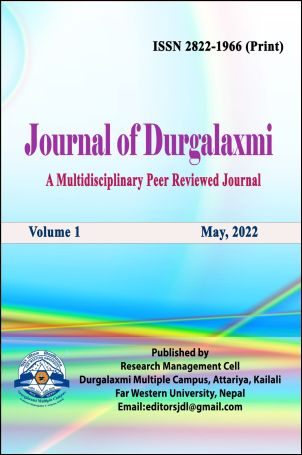Linguistic Human Rights and Trilingual Educational Policy of Nepal
DOI:
https://doi.org/10.3126/jdl.v1i1.57106Keywords:
Bilingualism, multilinualism, trilingual policy, linguistic human rightsAbstract
Resource-based approach and right-based approach in education are the two contending issues among the academicians who have their own opinions about whether to ensure individuals’ linguistic human rights or to treat language as a communication resource. However, this article aims to justify the suitability of the right-based approach in the trilingual educational policy of Nepal by providing arguments from cultural, social, economic, and educational perspectives. Firstly, it introduces right-based and resource-based approaches in education. Secondly, it concentrates on how this approach relates to present Nepal’s trilingual educational policy in practice. Finally, it advocates for the rigorous implementation of this policy of the government of Nepal for the cultural, social, economic and academic development of the learners and conservation of their linguistic human rights. It further explicates the role of translanguaging, bilingualism and multilingualism as some of the strategies or approaches that can be used according to the local context and needs of the learners.
Downloads
Downloads
Published
How to Cite
Issue
Section
License
Copyright (c) 2022 Narayan Paneru

This work is licensed under a Creative Commons Attribution-NonCommercial 4.0 International License.
CC BY-NC: This license allows reusers to distribute, remix, adapt, and build upon the material in any medium or format for noncommercial purposes only, and only so long as attribution is given to the creator.




